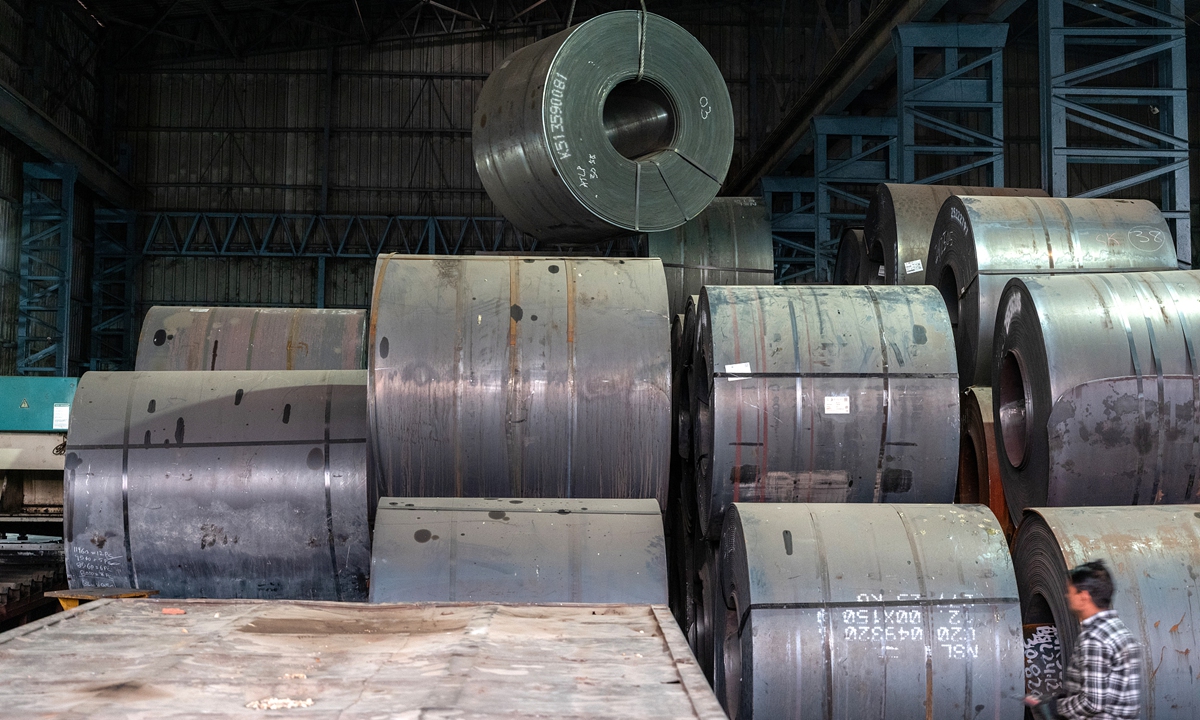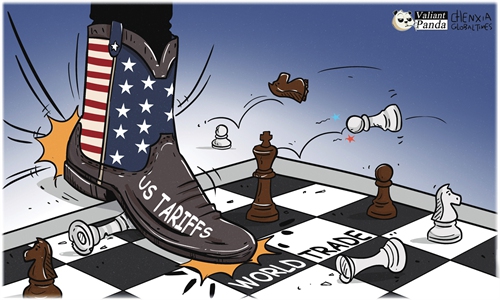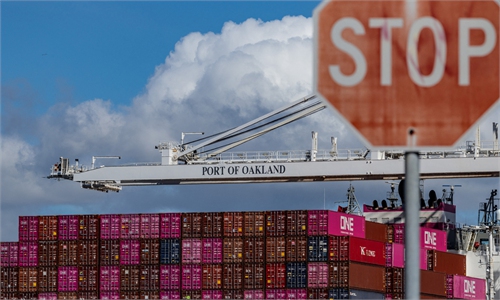India's new steel tariffs send ‘negative signal’ amid rising US protectionism: Chinese expert

Photo: VCG
India's decision to impose provisional safeguard duties on certain steel imports, though limited in its short-term impact, sends a "negative signal" amid growing US protectionism and could backfire on itself, a Chinese expert said on Tuesday.
India on Monday imposed a 12 percent temporary tariff on some steel imports, known as a safeguard duty in the country, to curb a surge in shipments primarily from China, Reuters reported.
The duty would be effective for 200 days from Monday and any shipment imported below $675 per ton "would attract the safeguard duty," the Times of India reported, citing a notification from India's Ministry of Finance. However, according to the notification, India's provisional duty explicitly excludes developing countries, with the exception of China and Vietnam.
Liu Xiaoxue, an associate research fellow at the National Institute of International Strategy under the Chinese Academy of Social Sciences, criticized the unilateral tariff as a violation of WTO rules. "Although the move did not single out China directly, China could be a key target," Liu told the Global Times on Tuesday, noting China's huge steel exports to India.
According to industry data, South Korea, China and Japan were the top three sources of India's steel imports in 2024, with China accounting for 26.88 percent, second to South Korea's 26.89 percent, followed by Japan at 18.02 percent.
While the short-term impact on global supply chains may be limited, the move would send a "negative signal" amid the US' protectionist actions and could harm Indian importers' interests, Qian Feng, director of the research department at the National Strategy Institute at Tsinghua University, told the Global Times on Tuesday.
"India is trying to strike a delicate balance: on the one hand, it wants to deepen trade with China; on the other hand, it uses tariffs to curry favor with Washington and gain leverage in trade talks with the US," Qian said, warning that "such a 'have-it-both-ways' strategy could backfire."
Notably, India's move comes amid US Vice President JD Vance's ongoing four-day visit to India, which seeks to avoid US tariffs and strike a bilateral trade deal with Washington, according to the Associated Press.
Vance and Indian Prime Minister Narendra Modi touted progress in talks for a trade deal between the two countries, as New Delhi rushes to avoid US tariffs and court the US administration, Reuters reported on Monday.
In response to reports that the US is preparing to pressure other countries to restrict trade ties with China in exchange for tariff exemptions, a spokesperson for the Ministry of Commerce said on Monday that China firmly opposes any deal between the US and its trading partners at the expense of Chinese interests, according to Xinhua.
"If such a situation arises, China will not accept it and will resolutely take corresponding countermeasures," said the spokesperson in a statement, while emphasizing that appeasement does not bring peace, compromise does not lead to respect, and attempts to trade the interests of others for tariff exemptions are doomed to fail and will ultimately harm all parties involved.
Liu noted that as India's largest source of trade deficits and under its "Make in India" campaign, China has long been a frequent target of India's unfair anti-dumping investigations. The weakening of WTO rules amid US tariff policies has fueled protectionism that could "disrupt global steel markets, particularly affecting developing countries reliant on East Asian suppliers," Liu cautioned.
"While the duty may temporarily benefit Indian steelmakers, it could ultimately hinder the sector's modernization," Qian said, adding that "protectionist policies will only reduce the incentive for domestic companies to upgrade their technology and improve their management."


